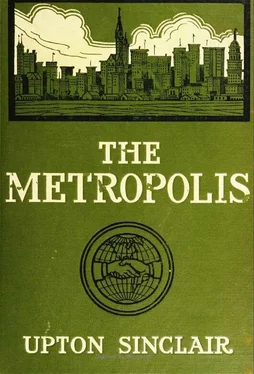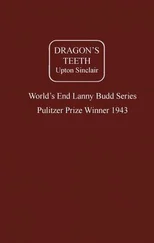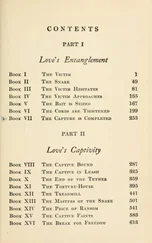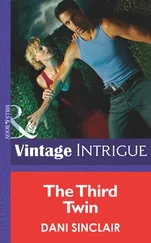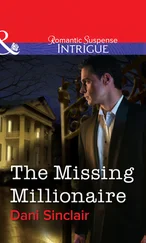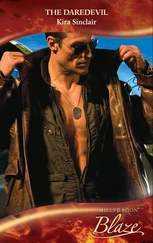Upton Sinclair - The Metropolis
Здесь есть возможность читать онлайн «Upton Sinclair - The Metropolis» весь текст электронной книги совершенно бесплатно (целиком полную версию без сокращений). В некоторых случаях можно слушать аудио, скачать через торрент в формате fb2 и присутствует краткое содержание. Год выпуска: 1908, Издательство: New York, Moffat, Yard & company, Жанр: Старинная литература, на английском языке. Описание произведения, (предисловие) а так же отзывы посетителей доступны на портале библиотеки ЛибКат.
- Название:The Metropolis
- Автор:
- Издательство:New York, Moffat, Yard & company
- Жанр:
- Год:1908
- ISBN:нет данных
- Рейтинг книги:5 / 5. Голосов: 1
-
Избранное:Добавить в избранное
- Отзывы:
-
Ваша оценка:
- 100
- 1
- 2
- 3
- 4
- 5
The Metropolis: краткое содержание, описание и аннотация
Предлагаем к чтению аннотацию, описание, краткое содержание или предисловие (зависит от того, что написал сам автор книги «The Metropolis»). Если вы не нашли необходимую информацию о книге — напишите в комментариях, мы постараемся отыскать её.
The Metropolis — читать онлайн бесплатно полную книгу (весь текст) целиком
Ниже представлен текст книги, разбитый по страницам. Система сохранения места последней прочитанной страницы, позволяет с удобством читать онлайн бесплатно книгу «The Metropolis», без необходимости каждый раз заново искать на чём Вы остановились. Поставьте закладку, и сможете в любой момент перейти на страницу, на которой закончили чтение.
Интервал:
Закладка:
Then he told how an old negro had found him, and how he lay deUrious; and how, at last, the army marched his way. He ended his narrative with the simple sentence: " It was not until the siege of Petersburg that I was able to rejoin my command."
There was a murmur of applause; and then silence. Suddenly, from somewhere in the room, came the sound of singing — "Mine eyes have seen the glory of the coming of the Lord!" The old battle-hymn seemed to strike the very mood of the meeting; the whole throng took it
Digitized by Microsoft®
up, and they sang it, stanza by stanza. It was rolling forth like a mighty organ-chant as they came to the fervid closing: —
" He hath sounded forth the trumpet that shall never
call retreat; He is sifting out the hearts of men before His judgment
seat; Oh! be swift, my soul, to answer Him; be jubilant, my
feet,—
Our God is marching on!"
There was a pause again; and the presiding officer rose and said that, owing to the presence of a distinguished guest, they would forego one of their rules, and invite Judge Ellis to say a few words. The Judge came forward, and bowed his acknowledgment of their welcome. Then, perhaps feeling a need of relief after the sombre recital, the Judge took occasion to apologise for his own temerity in addressing a roomful of warriors; and somehow he managed to make that remind him of a story of an army mule, a very amusing story; and that reminded him of another story, until, when he stopped and sat down, everyone in the room broke into delighted applause.
They went in to dinner. Montague sat by General Prentice, and he, in turn, by the Judge; the latter was reminded of more stories during the dinner, and kept everyone near him laughing. Finally Montague was moved to tell a story himself— about an old negro down home, who passed himself off for an Indian. The Judge was so good as to consider this an immensely funny story, and asked permission to tell it himself.
Digitized by Microsoft®
Several times after that he leaned over and spoke to Montague, who felt a slight twinge of guilt as he recalled his brother's cynical advice, ' Cultivate him !" The Judge was so willing to be cultivated, however, that it gave one's conscience Uttle chance.
They went back to the meeting-room again; chairs were shifted, and little groups formed, and cigars and pipes brought out. They moved the precious battle-flags forward, and someone produced a bugle and a couple of drums; then the walls of the place shook, as the whole company burst forth: —
" Bring the good old bugle, boys! we'll sing another song — Sing it with a spirit that will start the world along — Sing it as we used to sing it, fifty thousand strong,— While we were marching through Georgia! "
It was wonderful to witness the fervour with which they went through this rollicking chant — whose spirit we miss because we hear it too often. They were not skilled musicians — they could only sing loud; but the fire leaped into their eyes, and they swayed with the rhythm, and sang! Montague found himself watching the old blind soldier, who sat beating his foot in time, upon his face the look of one who sees visions.
And then he noticed another man, a little, red-faced Irishman, one of the drummers. The very spirit of the drum seemed to have entered into him — into his hands and his feet, his eyes and his head, and his round little body. He played a long roll between the verses, and it seemed as if he must surely be swept away upon the wings of
Digitized by Microsoft®
it. Catching Montague's eye, he nodded and smiled; and after that, every once in a while their eyes would meet and exchange a greeting. They sang "The Loyal Legioner" and "The Army Bean" and "John Brown's Body" and "Tramp, tramp, tramp, the boys are marching"; all the while the drum rattled and thundered, and the little drummer laughed and sang, the very incarnation of the care-free spirit of the soldier!
They stopped for a while, and the little man came over and was introduced. Lieutenant O'Day was his name; and after he had left. General Prentice leaned over to Montague and told him a story. "That little man," he said, "began as a drummer-boy in my regiment, and went all through the war in my brigade; and two years ago I met him on the street one cold winter night, as thin as I am, and shivering in a summer overcoat. I took him to dinner with me and watched him eat, and I made up my mind there was something wrong. I made him take me home, and do you know, the man was starving! He had a little tobacco shop, and he'd got into trouble — the trust had taken away his trade. And he had a sick wife, and a daughter clerking at six dollars a week!"
The General went on to tell of his struggle to induce the little man to accept his aid — to accept a loan of a few hundreds of dollars from Prentice, the banker! " I never had anything hurt me so in all my life," he said. "Finally I took him into the bank — and now you can see he has enough to eat!"
Digitized by Microsoft®
They began to sing again, and Montague sat and thought over the story. It seemed to him typical of the thing that made this meeting beautiful to him—of the spirit of brotherhood and service that reigned here.—They sang "We are tenting to-night on the old camp ground"; they sang Benny Havens, Oh!" and "A Soldier No More"; they sang other songs of tenderness and sorrow, and men felt a trembUng in their voices and a mist stealing over their eyes. Upon Montague a spell was falling.
Over these men and their story there hung a mystery — a presence of wonder, that discloses itself but rarely to mortals, and only to those who have dreamed and dared. They had not found it easy to do their duty; they had had their wives and children, their homes and friends and familiar places; and all these they had left to serve the Eepublic. They had taught themselves a new way of life — they had. forged themselves into an iron sword of war. They had marched and fought in dust and heat, in pouring rains and driving, icy blasts; they had become men grim and terrible in spirit—men with limbs of steel, who could march or ride for days and nights, who could lie down and sleep upon the ground in rain storms and winter snows, who were ready to leap at a word and seize their muskets and rush into the cannon's mouth. They had learned to stare into the face of death, to meet its fiery eyes; to march and eat and sleep, to laugh and play and sing, in its presence — to carry their life in their hands, and toss it about as a juggler tosses a ball. And this for Freedom: for the star-
Digitized by Microsoft®
crowned goddess with the flaming eyes, who trod upon the mountain tops and called to them in the shock and fury of the battle; whose trailing robes they followed through the dust and cannon-smoke; for a gUmpse of whose shining face they had kept the long night vigils and charged upon the guns in the morning; for a touch of whose shimmering robe they had wasted in prison pens, where famine and loathsome pestilence and raving madness stalked about in the broad daylight.
And now this army of deliverance, with its waving banners and its prancing horses and its rumbling cannon, had marched into the shadow-world. The very ground that it had trod was sacred; and one who fingered the dusty volumes which held the record of its deeds would feel a strange awe come upon him, and thrill with a sudden fear of life — that was so fleeting and so Uttle to be understood. There were boyhood memories in Montague's mind, of hours of consecration, when the vision had descended upon him, and he had sat with face hidden in his hands.
It was for the Republic that these men had suffered; for him and his children — that a government of the people, by the people, for the people, might not perish from the earth. And with the organ-music of the Gettysburg Address echoing within him, the boy laid his soul upon the altar of his country. They had done so much for him — and now, was there anything that he could do.? A dozen years had passed since then, and still he knew that deep within him — deeper than all other purposes, than all
Читать дальшеИнтервал:
Закладка:
Похожие книги на «The Metropolis»
Представляем Вашему вниманию похожие книги на «The Metropolis» списком для выбора. Мы отобрали схожую по названию и смыслу литературу в надежде предоставить читателям больше вариантов отыскать новые, интересные, ещё непрочитанные произведения.
Обсуждение, отзывы о книге «The Metropolis» и просто собственные мнения читателей. Оставьте ваши комментарии, напишите, что Вы думаете о произведении, его смысле или главных героях. Укажите что конкретно понравилось, а что нет, и почему Вы так считаете.
